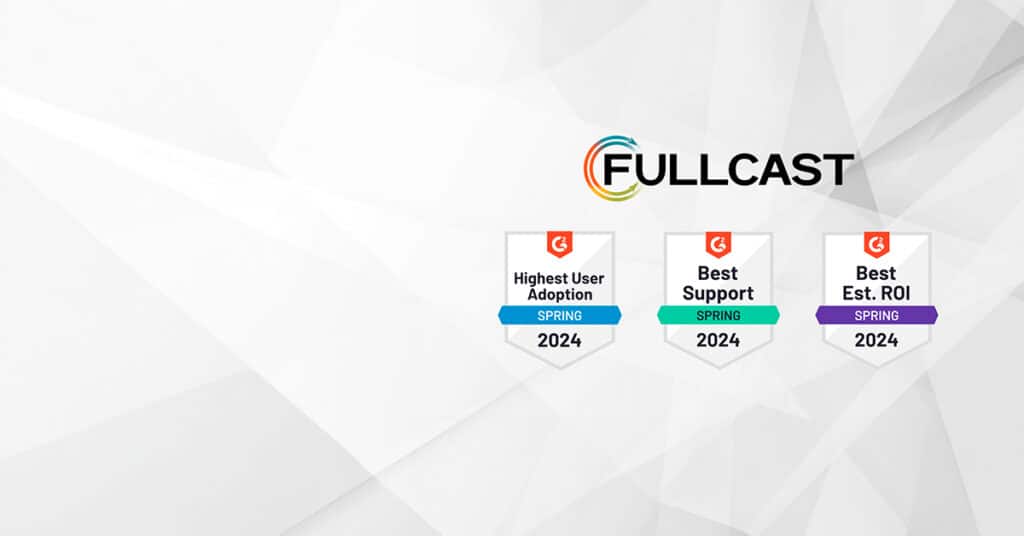Welcome to Sales Ops Leaders, an interview series featuring sales ops professionals in all industries, company sizes, and stages of their career. We’re featuring leaders who work in all aspects of sales operations as a way to learn from each other, answer tough questions, and connect the sales ops community. Matt Haller is the founder and CEO of The Startup Seller, which provides sales compensation support for growing companies. Through their inaugural offering “Sales Compensation-as-a-Service,” The Startup Seller fully manages sales incentive programs from design to incentive calculations, rep statement generation, and payroll files for a single monthly subscription. In a past life, Matt was a management consultant for The Alexander Group and Deloitte, where he designed over $3.5B in sales incentive programs for clients like Hewlett-Packard, New Relic, and Fastly.
fullcast.io: You recently left Deloitte’s Sales Effectiveness practice. What have you been up to since then?
Matt: I’m currently the founder of a company called The Startup Seller, which provides fully managed sales compensation programs to its clients. We launched what we’re calling Sales Compensation-as-a-Service – compensation design advisory, plan communications support, and compensation statement administration all for a single monthly subscription. We realized that companies – even today – struggle with managing their sales incentive programs from ideation to remuneration, so we wanted to create an offering that leverages our expertise in sales compensation so our clients can focus on what they do best – growing their businesses.
fullcast.io: What are your top priorities when working with sales teams?
Matt: Working in the compensation space, I typically prioritize understanding the client’s business objectives and how those objectives are represented in the comp plan design. I often ask my clients what their business goals are and they will respond with 2-3 annual goals – then hand me a sales compensation plan that includes 4 (or more!) measures that don’t clearly tie back to those stated goals. You can imagine the misalignment, increased cost of sales, and lower rep productivity that can result, so I try to make sure there is a clear connection between what the business is asking the reps to do and how they are rewarded for success.
fullcast.io: How do you think sales operations will change in the future?
Matt: Sales operations today is under increasing pressure to deliver white-glove service to sales reps at scale – but doing so with fewer resources than ever before due to the proliferation of the sales tech stack beyond CRM to include a whole new suite of productivity tools (Outreach.io, Chorus.ai, etc.). This means that sales ops has to evolve and take on additional capabilities beyond deal support (price quotes, sales collateral, etc.) but also have to take on elements of IT in order to manage all of this technology. As a result, I believe the profile of the sales ops team will continue to reflect front-office IT capabilities to independently manage the tech stack. At a minimum I believe the future profile of the sales ops analyst will change from a primarily business acumen to a hybrid business/technology background, helping companies make sense of their data and designing optimized workflows for reps by stitching multiple tools together.
fullcast.io: What’s a prevalent challenge you see sales teams facing?
Matt: Data visibility! Almost every organization I have worked with has struggled to clearly identify and track sales KPIs. Whether it is clear account definitions, defined territory mappings, accurate forecasts, or sales influence, sales leaders (and teams) need to be able to dissect their go to market plans in excruciating detail so they can make enough investments in the right customer segments to grow the business. We know that reps aren’t always great at entering data (which is part of the problem) but ultimately it’s hard to execute against a strategic vision if you can’t measure where you came from, where you are now, and where you want to get in the future.
fullcast.io: What advice do you have for sales leaders building a sales and sales ops team?
Matt: Build a sales tech stack roadmap in parallel with your growth plans. Just as you have a general idea about where you want to take your business in the next 3-5 years, consider the data points and technical capabilities that will be required to support that plan and build your underlying data model accordingly. Although the blueprint will change as the vision is more clearly defined, it will be a lot easier (and faster!) for your sales ops teams to support the sales team if they have access to the right data when implementing a new solution. Too often executives make a decision to purchase a tool because they are sold on cost-saving or productivity increases that ultimately never come to fruition because their underlying data needs to be transformed. Connect with Matt on LinkedIn.











